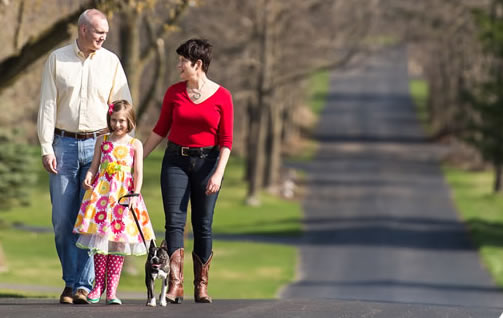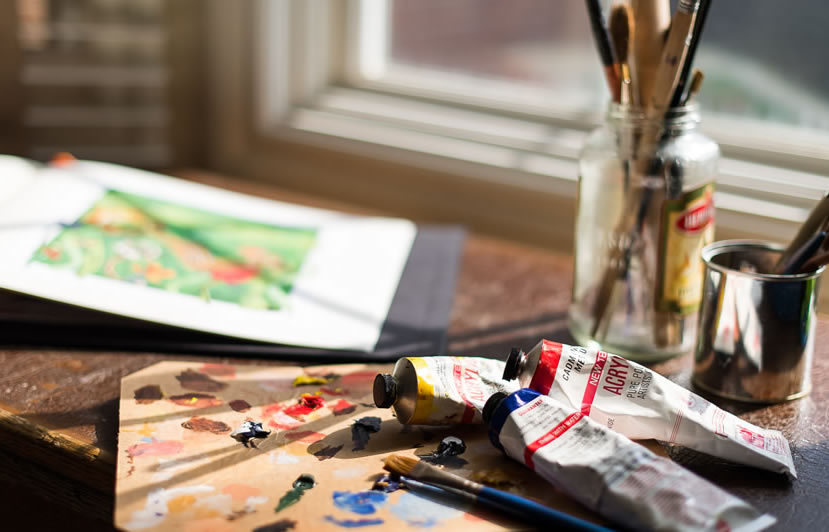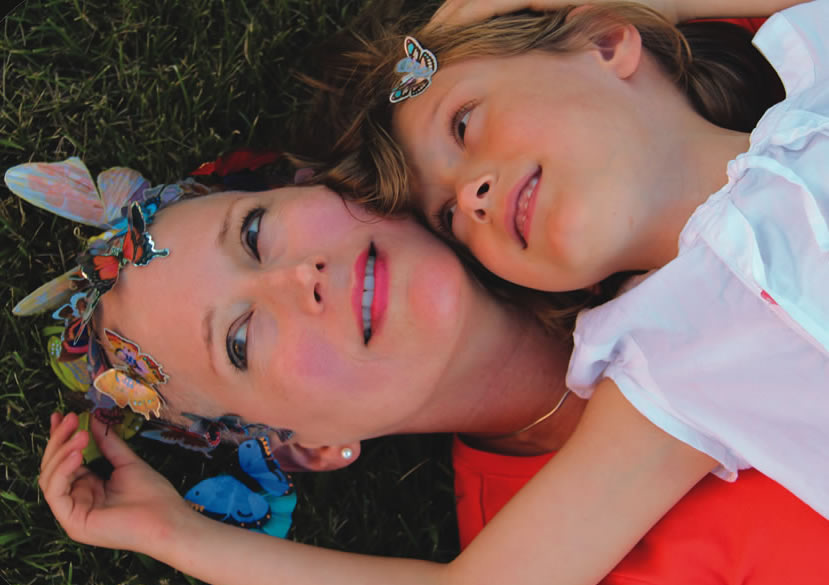Support Systems

Photo Credit: Edda Pacifico
One patient reflects upon what helped her most throughout cancer
Heidi Woodward Sheffield, a graphic designer, artist and writer, wasn't one to do breast exams -- frankly, they scared her -- but one morning she heard the voice of her father, who had passed away a few years earlier.
"Look here," he said. She was sure her mind was playing tricks on her. "Look here, NOW," he said. Her hand went right to the lump, which was eventually diagnosed as stage 2 invasive breast cancer.
As a wife and working mom, Sheffield looks back on the past two-and-a-half years of surgeries, chemotherapy, radiation therapy and reconstruction with relief. She is cancer-free and feels fortunate to have had a sense of rebirth throughout the process. In retrospect, she shares her best bets on coping, accepting help and support systems.
Truths About Treatment
One of the toughest parts of treatment, Sheffield says, was the waiting. In her case, it took months to determine the margins of her tumor. She had three surgeries leading up to the removal of her right breast.
During her subsequent radiation therapy, her skin became bright red and began to peel. In order to proceed, Sheffield had to take a break and give herself time to heal.
"Just as every patient is different, how every patient tolerates their treatment, in this case, radiation, also differs by individual," says Lori Pearce, M.D., professor of radiation oncology. "Individualizing care, from the caregiver’s perspective, and having patience to allow the body to heal, from the patient’s perspective, are both extremely important in optimizing a successful treatment course."

Photo Credit: Edda Pacifico
And, because of Sheffield's treatment regimen, she had to wait to make decisions about reconstructive surgery.
"I waited more than a year, weighing the pros and cons of breast reconstruction, both physically and mentally," she says. During this time, she gained back much of the weight she'd lost during treatment, making her eligible for a DIEP flap reconstruction, a procedure she preferred. It resulted in less scarring.
Sheffield, in hindsight, can see the advantages of taking time to make decisions and heal. In her case, it resulted in positive outcomes.
Findings on Family
"My husband is an engineer and able to look at things analytically, whereas I'm an artist and more emotional," Sheffield says.
During her experience with cancer, Sheffield learned to embrace these differences and let her husband, Ray, provide the support she needed.
"He helped me weigh out the options, sift through tough decisions and, as a result, I didn't have to burden myself with details, which was very comforting," she says. "Ray had the ability to research, digest and compartmentalize vast amounts of information while examining cause and effect."
Sheffield's sister, B.G., also provided encouragement and attended every chemotherapy appointment.
"She was my advocate, reminding the nurses of my latex allergy, helping me figure out between using a port or an IV and reminding me to use numbing cream before they plugged me in for chemo."
Sheffield describes this time with her sister as especially poignant. She believes her sister's support was instrumental in her healing.
Comments on Coping
It seemed natural to take time off to heal and cope, but for Sheffield, too much time left her in a depression.
"I felt guilty and panicked to find I couldn't look at one person who had lost her hair. It was unnerving and I was in denial," she says. "I also found it hard to continue my daily work, activities and had withdrawn from public life.”"
She turned to the Rogel Cancer Center's PsychOncology program and was referred to Sharon Mudd, a nurse practitioner in the U-M Department of Psychiatry.
"Most people face some degree of depression, anxiety and fear when cancer becomes a part of their lives," says Mudd. "We help people work through their grief, offer support during these difficult times, problem solve around new problems that arise because of the onset of the cancer, and work with the Rogel Cancer Center staff to coordinate the patient’s care."
Sheffield suggests people do what they can during cancer treatment to stay engaged in regular life to keep their mind off cancer.
She also discovered the Rogel Cancer Center's art therapy program and, though she felt like she'd fallen out of touch with art, experienced renewed creativity and a rekindled desire to pursue her passion of writing and illustrating children's books.

Sheffield's Tips for Parents with Cancer
1. Communicate with your child's teachers to ensure they are sensitive during a difficult time.
2. Share special moments as much as possible. For example, Sheffield and her daughter decorated her head with butterfly stickers.
3. Take advantage of the Cancer Center's Families Facing Cancer program and its Come & Visit Tour.
4. Read books for children, such as The Goodbye Cancer Garden.
Learn more about the support services Sheffield used:
Read the Summer, 2015 issue of Thrive.
